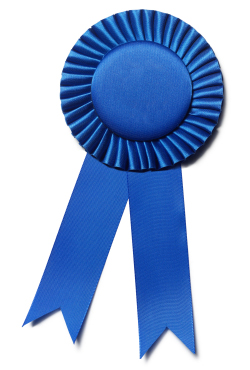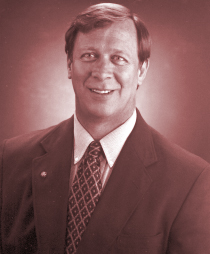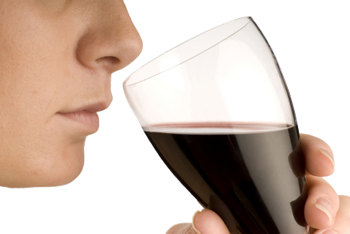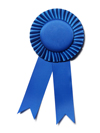

Wine consumers will be more apt to buy locally produced wines if they can be assured that they are of equal quality to national brands.
Pennsylvania (State Appellation)
Pennsylvania's Quality Assurance Program Will Lure Consumers to Local Wines
by
David Falchek
March 6, 2008
 uality-minded eastern winemakers have a tough job. They want to acknowledge their best, and weed out the bad, but they also need to overcome consumers’ hesitancy to buy wine made close to home by starting quality assurance programs. One of the latest states to take this step is Pennsylvania. Working with wine industry leaders, Penn State Enology Extension Agent Stephen Menke believes that he has brought standards of measure to a subjective process – identifying wine quality.
uality-minded eastern winemakers have a tough job. They want to acknowledge their best, and weed out the bad, but they also need to overcome consumers’ hesitancy to buy wine made close to home by starting quality assurance programs. One of the latest states to take this step is Pennsylvania. Working with wine industry leaders, Penn State Enology Extension Agent Stephen Menke believes that he has brought standards of measure to a subjective process – identifying wine quality.
Other states and Canadian provinces have quality assurance programs. Perhaps the best known and regarded is Ontario’s Vintners’ Quality Alliance, which subjects wines to production rules, laboratory tests, and evaluation by an expert panel. Still other programs are in various stages in Ohio, New Jersey, and throughout the east.
Two factors seem to be driving the proliferation of quality assurance programs. First, the regional wine industry faces consumer bias. Second, an explosion of new wineries in the east has put more rookies in the business.
For the first time since Prohibition, the United States has more wineries outside of California than within it.
Many veterans got their act together producing quality wines years ago, but today they share the industry with a gaggle of newcomers fumbling through fermentations.
A quality program, if meaningful and well communicated, could provide a guide for consumers and also force lagging producers to improve. Eric Miller, co-owner and winemaker of Chaddsford Winery in Pennsylvania, expressed a common frustration. “Someone needs to grab the new guys, shake them, and say ‘smell this,’ and ‘taste this,’ “he said.
All quality groups use expert panels. But who is an expert and what standards do they use? “Despite the rise of science in winemaking, most wines are judged and evaluated on an entirely subjective basis,” lamented Menke. (Menke recently left Penn State to take a Colorado State University post.)

Penn State Enology Extension Agent Stephen Menke has recently moved to Colorado State University and taken a position as an associate professor of enology.
When Menke shared his plan with other enology extension agents, they thought it was a great idea but too costly and not that worthwhile. Menke’s innovation: make panelists, rather than cash-strapped programs, pay for the training. “The training is worth it to winemakers, wine writers, and others,” he said. Since he couldn’t hand pick the panelists, he couldn’t keep me out. Based in Pennsylvania, I’ve frequently judged - and enjoy - regional wines and saw this as a chance to pitch in.
Getting A Nose for Taste Sense
I once attended Menke’s seminar on “sensory echoes”, which showed how foods and wine flavors influence each other. Menke grew up on a farm in Nebraska, earned a Ph.D. in biological chemistry and worked for an Arizona winery and a Canadian brewery. He served as state enologist in Illinois before landing at Penn State University four years ago. In addition to enology and sensory and perception, he can tell a start-up winery owner what sort of compressor they will need to get salvaged dairy chillers working.The four-day training at Penn State’s University Department of Food Science included a review of sensory evaluation history going back to the beginning of the coffee and tea trade, and a survey of sensory evaluation texts, a review of sensory biology, and lots of smelling. Menke took a page from the market research group Tragon Corp., using its Qualified Descriptive Analysis process.

Humans can identify only five tastes but thousands of smells.
We take our places in crammed sensory stalls where temperature, lighting, and airflow are all controlled. Facing a rolling door used to pass samples, it’s difficult not to feel like a hamster waiting for a pellet. We start with a control - a mixture of alcohol, acid and glycerol. One by one, similar chemical blends appear with a certain concentration of a fault in parts per million, billion, even trillion. We mark the concentration at which we can sense, where we can identify, where we think it’s a flaw, and finally a fault.
I learned that I can identify ethyl acetate (a nail polish remover) in concentrations below the general population. I surprised myself by picking up the metallic edge of acetaldehyde, a product of bad yeast. I detected, but couldn’t identify, acetic acid, which is a component of common vinegar. After dozens of chemical samples, we experienced them all again in a standard white, then a red wine. We smelled hundreds of samples and our noses needed a week off.
A few months later a group of trained panelists reconvened, divided into a trained panel that only smelled and an expert panel that tasted and graded. The smellers (unhappy about their assignment) ejected wines with sensory faults and cleared others to the expert panel. A few bad ones snuck through.
“Quality in wine is easier to recognize than define,” the late Maynard Amerine, a professor emeritus at the University of California, Davis, warned. The Pennsylvania industry and Menke are undeterred. Menke wants to train a panel to detect and identify positive attributes, and to designate above average wines. “We can do what wine writers do, but we can (also) add the qualitative tags and standards scales that make it meaningful instead of someone using their judgment as a proxy for all,” he said.
Menke envisions that the panel will link consumers and producers, so wineries can adapt their style or exploit a niche - exactly what the food and beverage industry does. Many details need to be worked out: how to convince wineries to submit wine, whether to require that all wines be evaluated, and how to label or mark approved wine already in bottles and cases.
 Miller was on the standards board that helped create the criteria that Menke is using. Miller and other producers want grape crops to be certified in a similar way. With Menke having resigned from
Miller was on the standards board that helped create the criteria that Menke is using. Miller and other producers want grape crops to be certified in a similar way. With Menke having resigned from










 READER FEEDBACK: To post your comments on this story,
READER FEEDBACK: To post your comments on this story,



